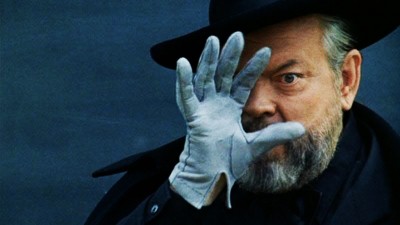
The review from 2005: Though it’s usually pegged as a documentary, Orson Welles always referred to this engaging, playful movie as an “essay film,” and that’s probably nearer the mark. It’s ostensibly an examination of two of the 20th century’s great fakers — art forger Elmyr de Hory and writer Clifford Irving — two men Welles suggests may have become hoaxers because the world rejected their very real talents.
It’s clear that Welles is — more than anything — having a field day playing with his chosen art of film, in a format that allowed him to indulge his passion for magic tricks and being a great raconteur. In some ways, it’s the Welles film that most captures the sense of his famous statement that making movies was “the best set of electric trains a boy ever had.”
It’s also one of his most engaging and slyly creative works. It looks like a kind of cinematic doodle, until you examine it a little more closely, whereupon you realize (with some shock) that there are moments in it that are as fine as anything he ever did. And what does that make it? A fake documentary about fakers that’s really a minor masterpiece passing itself off as something less than it is? Pretty much, yes, and that’s the sheer delight of it.
Classic World Cinema by Courtyard Gallery will presentF for FakeFriday, Jan. 10, at 8 p.m. at Phil Mechanic Studios, 109 Roberts St., River Arts District (upstairs in the Railroad Library). Info: 273-3332, www.ashevillecourtyard.com




This would make a good double bill with AMERICAN HUSTLE if the screening times line up.
I wanted to be a burglar or a con-artist when I grew up. Instead, I became an actor.
This is my favorite Welles film, partially just because the core subject is so up my alley, but because it feels both like his most personal film (the star character is really Orson Welles himself, after all), and like the audience is part of a great traveling cocktail party that is following the man around at all times.